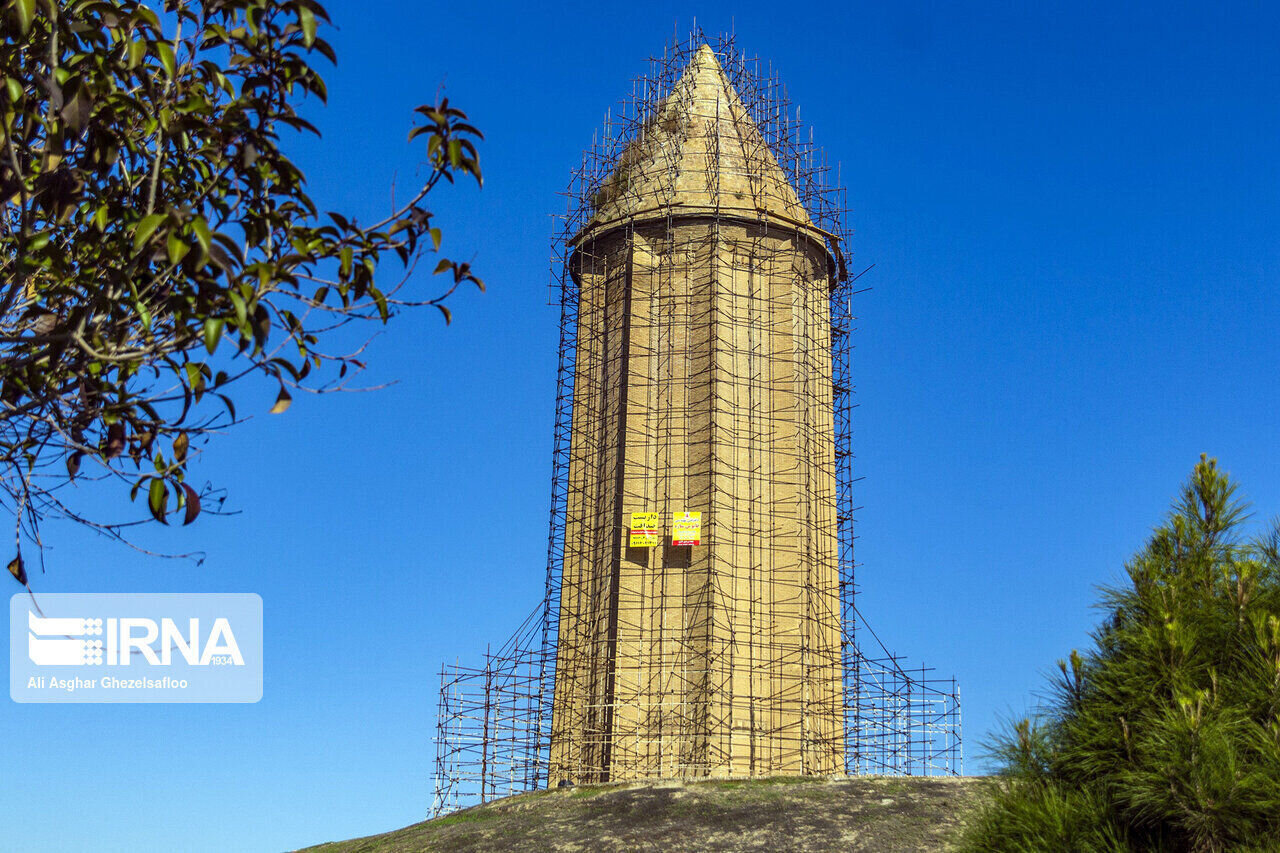Mayor pledges support for UNESCO-designated tower restoration

TEHRAN – Gonbad-e Kavus mayor on Sunday pledged support to help restore the city’s 1,000-year-old brick tower, which is registered as a World Heritage.
“The municipality is ready to provide funds to any amount allocated by the trustees of cultural heritage, tourism, and handicrafts for the restoration of Gonbad-e Qabus and its surrounding landscape,” Seyyed Ali-Asghar Mousavi said on Sunday.
Mousavi made the remarks in a meeting with cultural heritage, tourism, and city officials of the northern Iranian city, IRNA reported.
The head of the Islamic City Council of Gonbad-e Kavus attached great importance to safeguarding the ancient monument as a masterpiece of architecture.
“Gonbad-e Qabus, as a magnificent work, is an honor not only for the people of Gonbad-e Kavus but for all Iranians and even the whole Islamic world, so we should protect it as best as possible,” Rasul Paydar said.
Another speaker in the meeting was the director of the Gonbad-e Qabus World Heritage site who requested the financial support of the municipality to speed up the restoration of the conical part of the tower and to complete the landscaping of this historical monument.
“The conical part of Gonbad Qaboos, which consists of 5,000 valuable and historical bricks, needs an urgent restoration of 1,500 bricks, the current cost of which is estimated at 14 billion tomans (some $280,000),” Abdolmajid Nourtaghani said.
Last year, Nourtaghani publicized that the restoration and monitoring process of the tower may take two years. “A new restoration project on Gonbad-e Qabus may take about two years of fieldwork, analysis of the samples produced, substitutes of the worn-out bricks with exact replicas, and a thorough monitoring process.”
It is not possible to open all segments of the roof at once and then see that the samples produced are not suitable. Restoration work must proceed according to principles, the official explained.
Located in Golestan province, the monument is of high architectural importance as an exemplar and innovative design of early Islamic-era architecture.
Experts say that growing plants on the Qabus tower is not a new issue and is witnessed in all brick buildings across the country, especially in northern provinces, due to their climatic conditions.
Visible from great distances in the surrounding lowlands near the ancient Ziyarid capital, Jorjan, the 53-meter high Gonbad-e Qabus dominates a modern town of the same name laid out around its base in the early 20th century.
Its hollow, cylindrical shaft of unglazed fired brick tapers up from an intricate geometric plan in the form of a ten-pointed star to a conical roof. Two encircling kufic inscriptions commemorate Qabus Ibn Voshmgir, Ziyarid ruler and literati as its founder in 1006 CE.
As mentioned by UNESCO, the monument bears testimony to the cultural exchange between Central Asian nomads and the ancient civilization of Iran.
Narratives say the tower has influenced various subsequent designers of tomb towers and other cylindrical commemorative structures both in the region and beyond. The structure capped by an eye-catching conical roof boasts intricate geometric principles and patterns which embellish parts of its load-bearing brickwork.
AFM
Leave a Comment